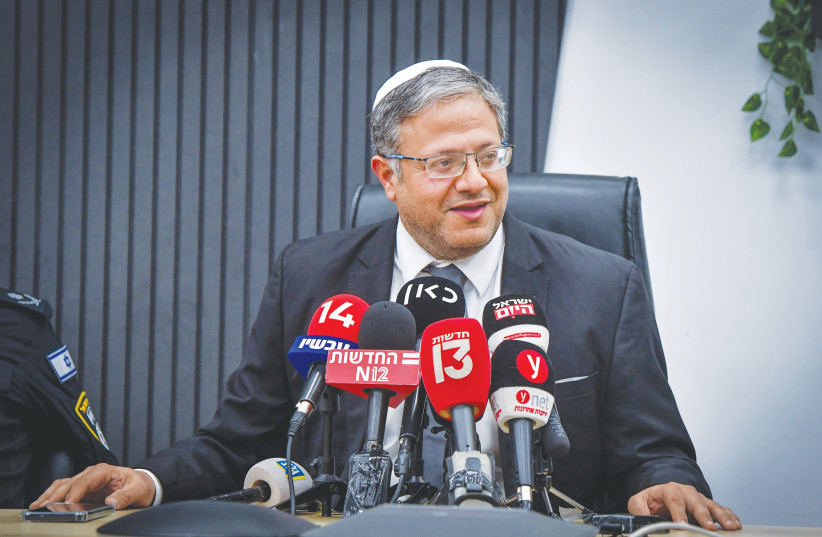Israel's government is split on who should control Gaza after the Swords of Iron War ends with ministers having given differing opinions for weeks.
Prime Minister Benjamin Netanyahu expressed a stance that he has repeated a few times in recent days.
"In order for there not to be a threat [from Gaza], for as long as needed, the IDF will continue to control security in the Gaza Strip to prevent terrorism from there," he said about what happens after the war. "The massacre of October 7 proved once and for all that in any place that Israel doesn't control the security, terrorism returns and settles, and in the end, it hits us."
But while he intends for Israel to maintain security authority, he doesn't want Gaza to become like Area B of the West Bank where the IDF is in charge of Security but the Palestinian Authority governs.
"There will be no civil authority that educates its children to hate Israel, kill Israelis, or destroy the State of Israel," he said."

The comment was seen unfavorably by the Biden administration who asked Netanyahu for clarification on his intentions.
Ben-Gvir took a more extreme stance
Meanwhile, on Sunday, National Security Minister Itamar Ben-Gvir took a more extreme stance, telling Reshet Bet that believes Israel needs to take full control of the Gaza Strip after the war.
"We need to make it clear to the world that we need to occupy Gaza, or more right release it," he said. "I see it as something very simple. Every time our enemies lost territory, it was because we won a war."
Ben-Gvir went on to say that if Israel doesn't control the Strip, the residents of the South who evacuated won't want to return.
The national security minister was strongly against Israel's disengagement from the area in 2005 and expressed in the interview that he would be happy for Israelis to return there.
The same sentiment has been expressed by other ministers on the far-right like Heritage Minister Amichai Eliyahu and Finance Minister Bezalel Smotrich who has said that giving the PA control over Gaza would be the same as Hamas's rule in the area.
In a letter sent to Netanyahu a few days after the war broke out, 16 coalition MKs, led by Likud MK Amit Halevi requested that the objective of the war be changed to include Israel regaining full control of the Strip.
Education Minister Yoav Kisch said last week that Israeli resettlement in the strip was possible but that Israel has no interest in controlling the Gaza Strip permanently.
"Whatever is needed to ensure that there is no threat to the State of Israel from the Gaza Strip will be done," he told Army Radio.
Meanwhile, the different options suggested for leadership in Gaza range from international rule to joint Israeli-Egyptian control to handing it over to the PA.
The majority of voices from the government oppose the latter option, however, and the debate continues.
